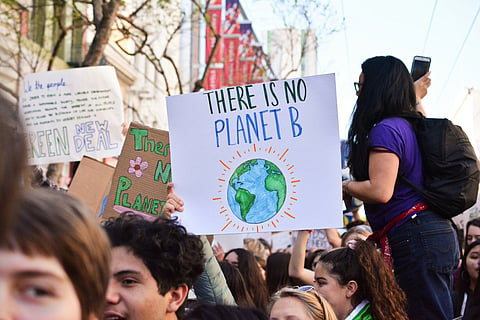

Amnesty International released a report on Wednesday revealing that at least 2 billion people live within 5 kilometers of over 18,000 operating fossil fuel infrastructure sites worldwide.
The study, conducted with Better Planet Laboratory, estimates more than 520 million of those affected are children, with 463 million residing within 1 kilometer of such sites.
It warns that over 3,500 new sites under development could endanger an additional 135 million people.
Presented at the COP30 climate conference in Belem, Brazil, the findings underscore the industry's role in climate alteration and human rights violations.
Amnesty said living near fossil fuel infrastructure has been associated with elevated risks of cancer, asthma, cardiovascular illnesses and other health problems.
The report documents human rights abuses, including killings and enforced disappearances, particularly against environmental activists and Indigenous peoples defending their territories.
Despite representing less than 5 percent of the global population, at least 16.1 percent of known global fossil fuel infrastructure is sited on Indigenous territories.
More than 32 percent of existing fossil fuel sites overlapped with one or more critical ecosystems.
More than 3,500 fossil fuel infrastructure sites are either proposed, in development, or under construction globally.
Oil and gas projects are set to increase across all continents while coal plants and mines are increasing mostly in China and India.
The report calls for states to end fossil fuel expansion and adopt a non-proliferation treaty for a just transition to renewables.
A 2024 UN Development Programme survey found more than 80 percent of people want stronger action on the climate crisis, with 72 percent supporting a rapid phase-out of fossil fuels.